PhD
Thanks to everyone who took part in this research I led for the Neurodivergent Task & Finish Group! We explored neurodivergent perspectives on a strengths & needs-led approach in schools—support that focuses on strengths and support needs, and can be used without waiting for a diagnosis.
Key takeaways:
🌱 Promising but fragile ➕ Should complement, not replace, diagnosis 👥 Must be genuinely co-produced
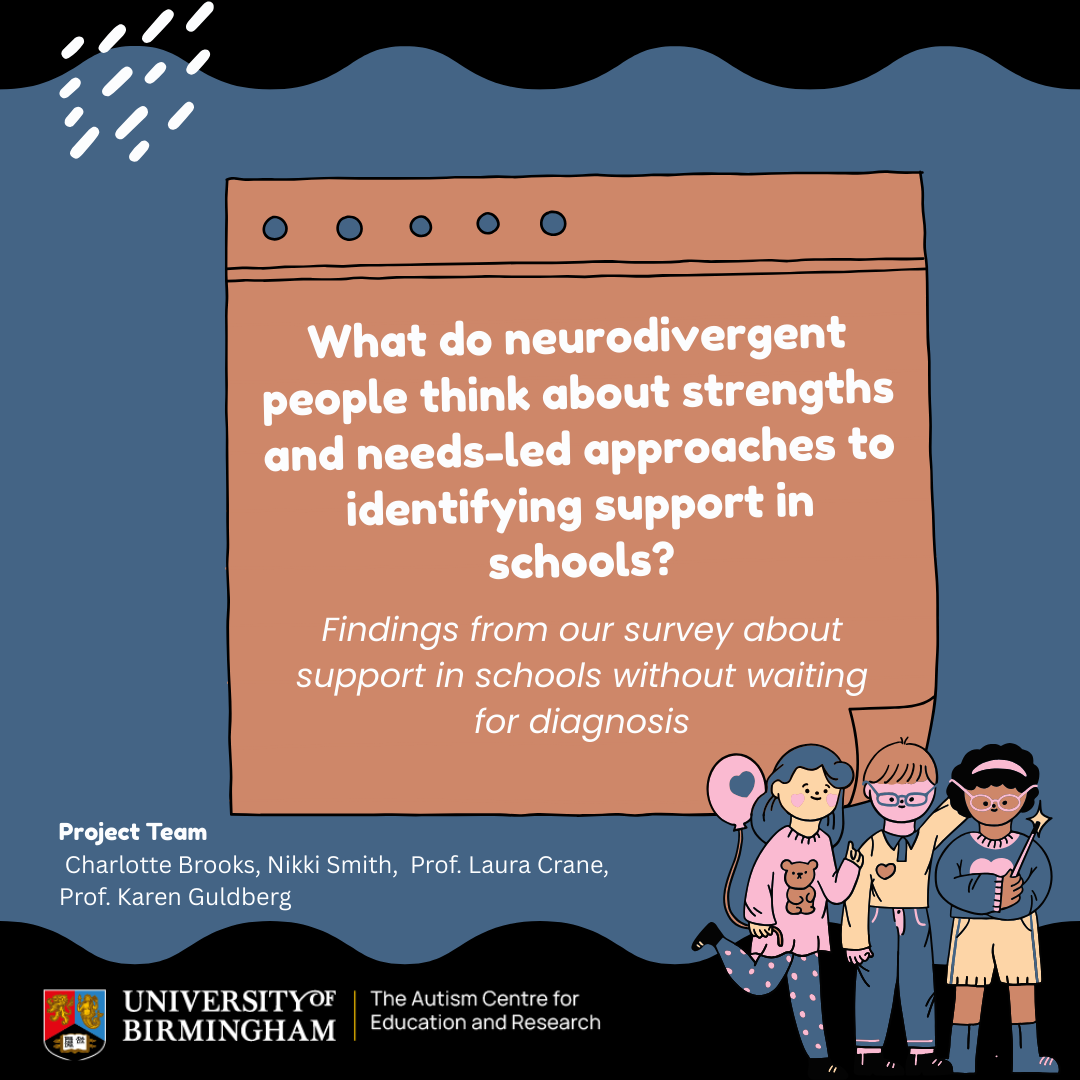
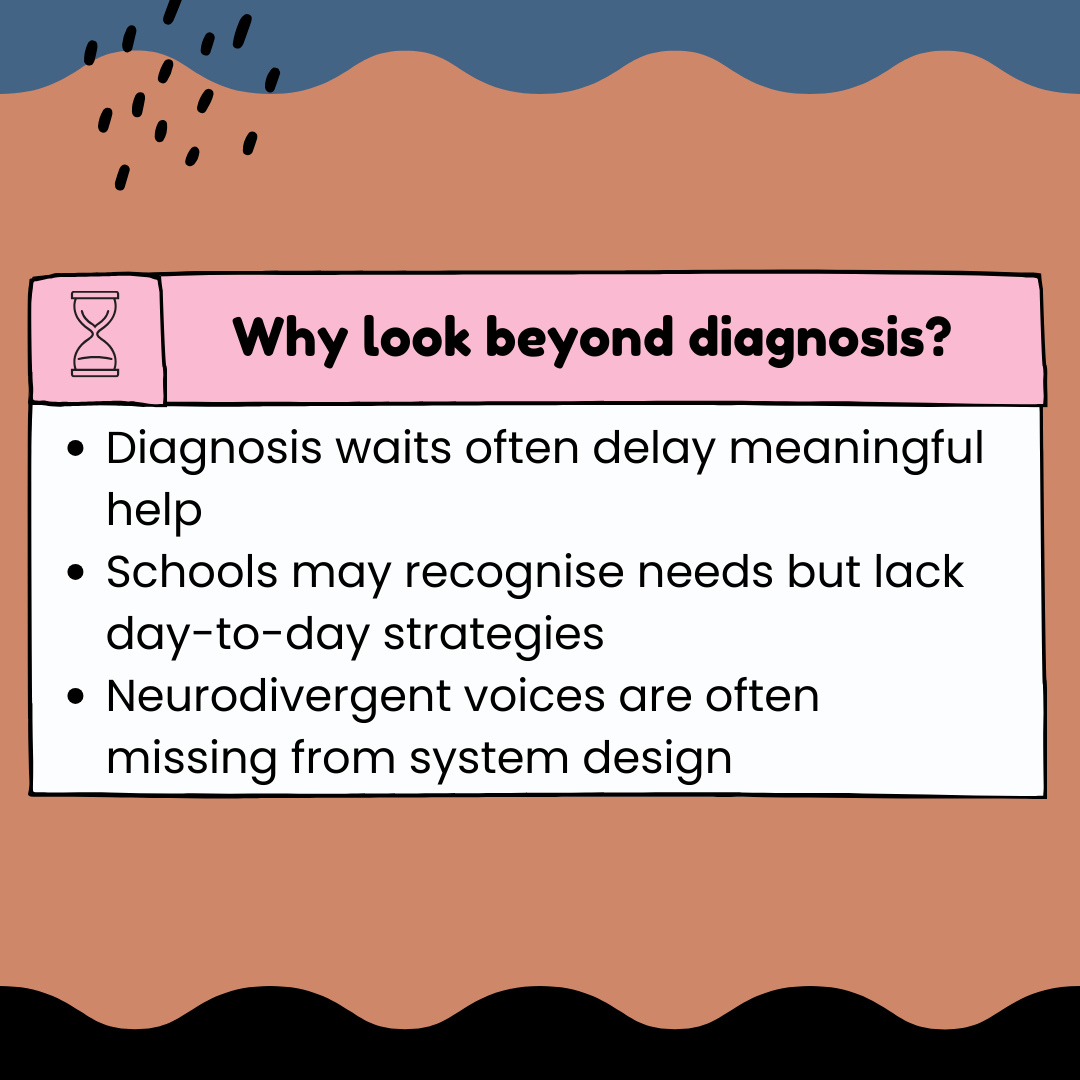
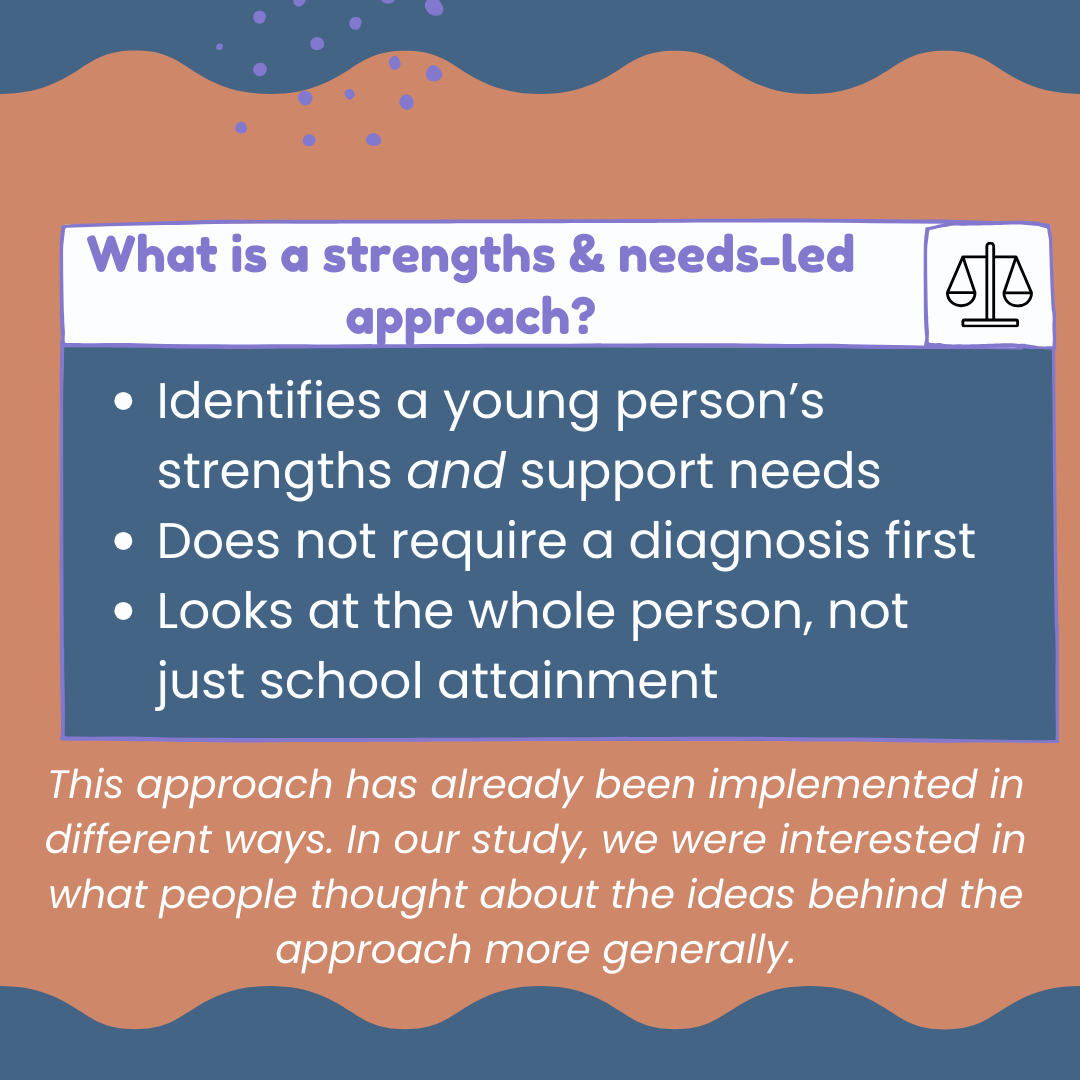





![Quotes from 3 participants: Reports like these don’t always have the clout or the same protections [as a diagnosis] (#2, Neurodivergent person, aged 25-34); Many schools are already strained as they are (#15, Neurodivergent person, aged 16-24); Until the resourcing problem at the heart
of the issue is improved, everything else
can only make small changes here and there.
(#1, Neurodivergent person, aged 35-44).](https://thegoo.se/uploads/2026/9.png)


Young people wanted to understand strategies for creating inclusive environments that ensure nonbinary autistic students feel supported throughout school. From participants in my PhD research, these questions inform a subsequent study with teachers #AutRes

My participants were curious about how teachers recognise and support diverse identities, experiences and needs to help them feel included, respected and understood in school. From participants in my PhD research, these questions inform a subsequent study with teachers #AutRes

Had a great time sharing my PhD research at #AutismEurope2025 on autistic nonbinary young people’s school experiences. Early findings highlight the importance of support identity as part of a holistic approach. Poster: thegoo.se/aec-poste…
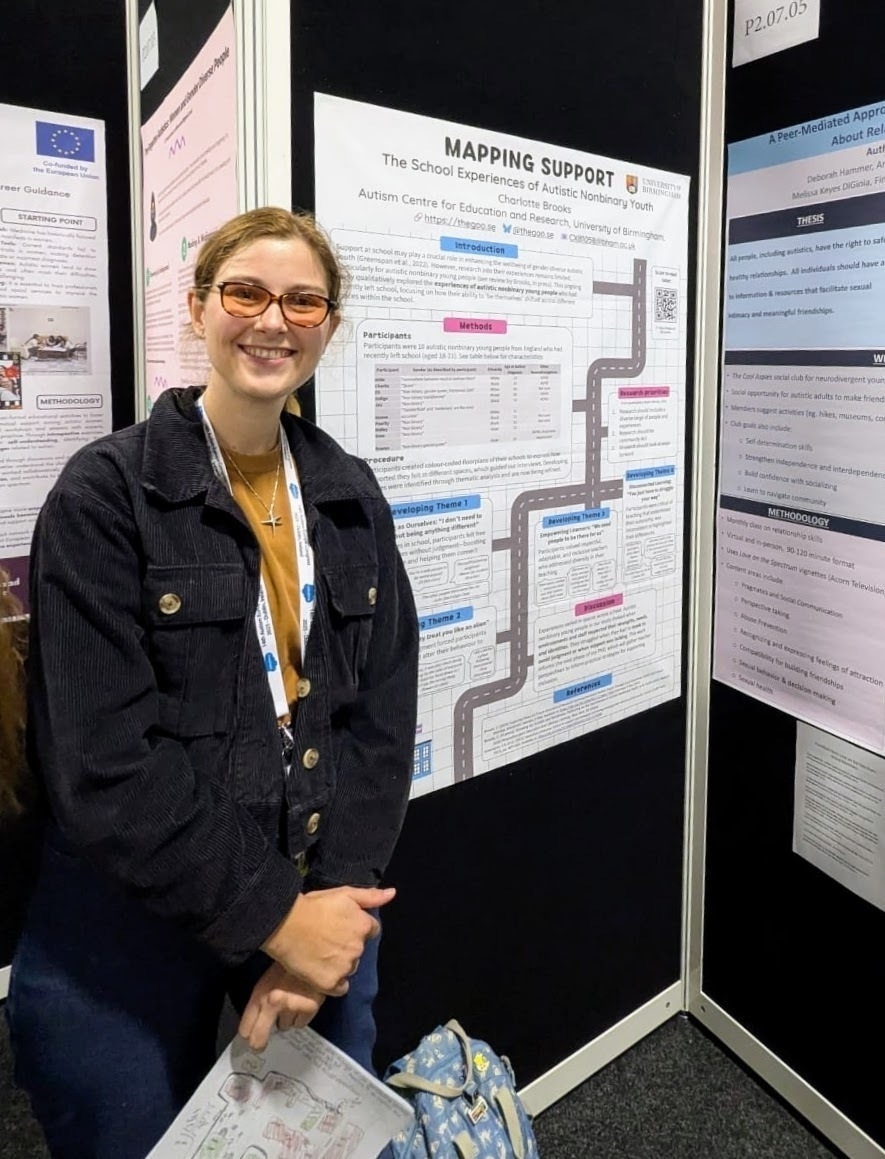
In my PhD, my participants drew floorplans of their schools, which guided our interviews and evoked the physicality of spaces around school. Colour coding added another layer, helping them to reference areas they felt more/less comfortable in the interview #AcademicSky #PhDlife #AutRes
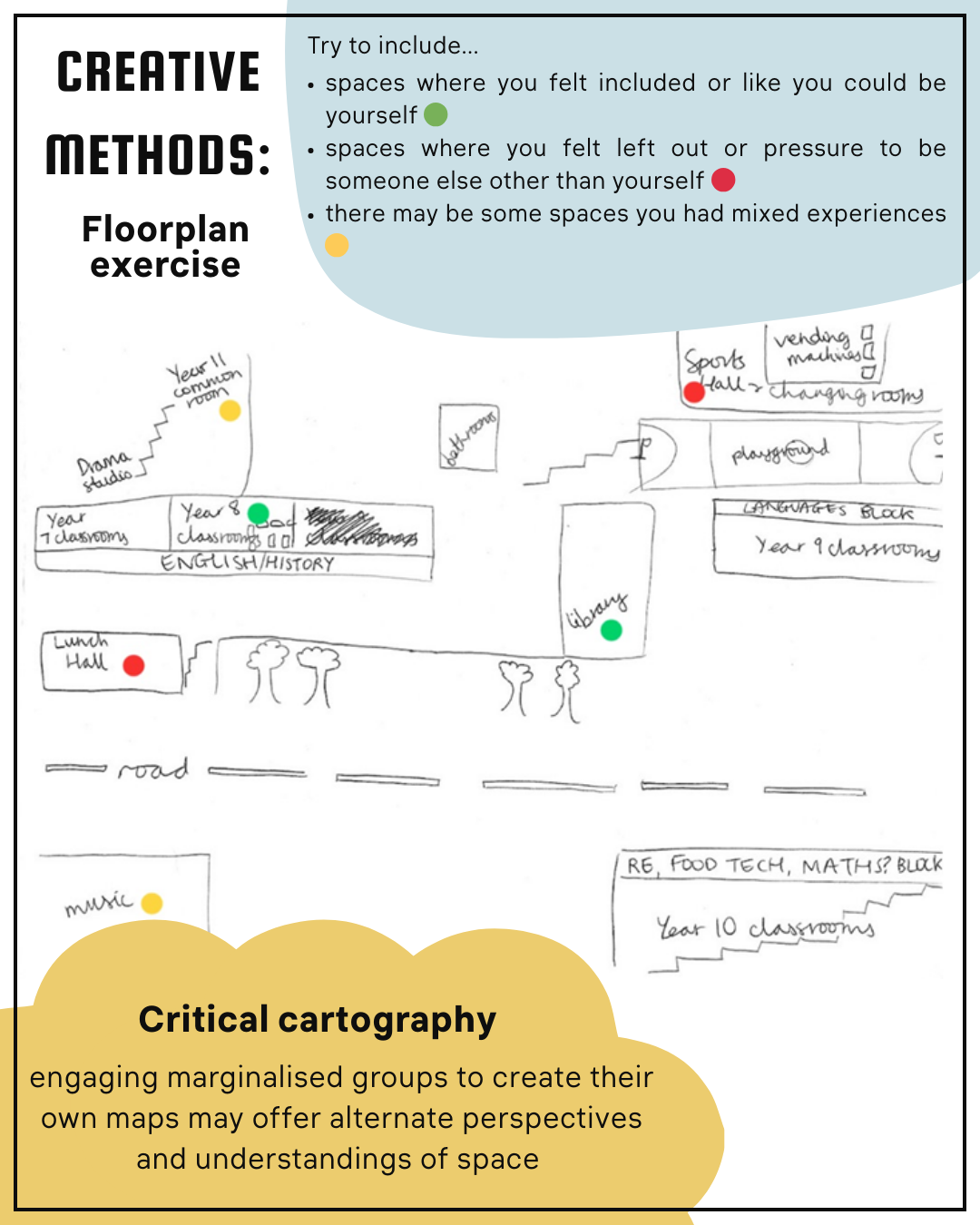

In my doctoral research,
- I’m interested in individuals' lived experiences
- I’m engaging with participatory methods
- I’m interested in knowledges that are situated in spaces within the school
How are the findings from my Master’s research informing my #AutRes PhD on the school experiences of autistic nonbinary young people?
-
I’m asking participants what they found supportive at school
-
(and what they wish was different)
-
I’m anticipating that findings will provide recommendations for schools

How are the findings from my Master’s research informing my #AutRes PhD on the school experiences of autistic nonbinary young people?
-
I’m guided by what past participants think research should focus on
-
I’ve asked for feedback on study materials and my analysis
-
I’m asking participants what teachers should be asked for interviews in the second phase of my research

How are the findings from my Master’s research informing my PhD on the school experiences of autistic nonbinary young people?
-
I’m focusing on underrepresented perspectives
-
I’m giving a choice of interview modality so non-speaking people can take part
-
I’m taking an intersectional perspective encouraging participants to talk about many identity aspects and how they interact

📖 I’ve submitted my first book chapter!
It’s for a book on Neurodivergent Education and Lifelong Learning being edited by @keatesresearch.bsky.social and @krysiawally.bsky.social! I’m so excited! My chapter reviews research on the experiences of nonbinary autistic young people #AutRes

How I think referencing will go… I know exactly what I need to cite, I’m so well-read and amazing 😎 How it actually goes… WHERE is the proof for this thing I know exists 😩
I both cite as I write & go back to find references afterwards, how about you? #AutRes
Autism and Gender diversity: Supporting trans and autistic children and young people
I’m excited to share this talk on ‘Autism and Gender diversity: Supporting trans and autistic children and young people’, which I made to contribute to course materials for the University of Birmingham MA in Inclusion: www.youtube.com/watch
Autistic children and young people are four times more likely to be gender diverse than non-autistic children and young people (Hisle-Gorman et al., 2019).
🏳️⚧️ My talk provides an introduction to terms around gender diversity, the overlap with being autistic, and how gender diversity may be experienced by autistic young people. 🤝 I then go on to talk about what autistic gender diverse young people need from professionals working to support them. I also provide further resources to explore this topic further (see video description)
Autism and Gender diversity: Supporting trans and autistic children and young people
I’m excited to share this talk on ‘Autism and Gender diversity: Supporting trans and autistic children and young people’, which I made to contribute to course materials for the University of Birmingham MA in Inclusion: www.youtube.com/watch
Autistic children and young people are four times more likely to be gender diverse than non-autistic children and young people (Hisle-Gorman et al., 2019).
🏳️⚧️ My talk provides an introduction to terms around gender diversity, the overlap with being autistic, and how gender diversity may be experienced by autistic young people. 🤝 I then go on to talk about what autistic gender diverse young people need from professionals working to support them. I also provide further resources to explore this topic further (see video description)